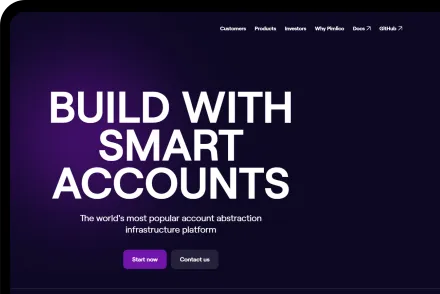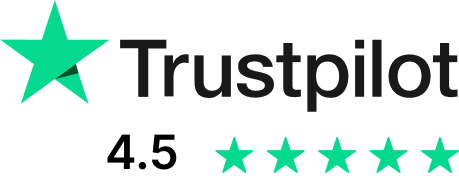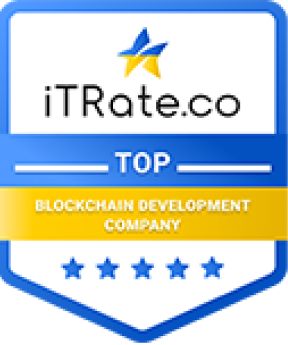Why Choose Tanθ For Fintech Blockchain Development Company?
Empower your finance business with Tanθ Software Studio's Fintech Blockchain solutions and services. Our expert team specializes in developing cutting-edge blockchain solutions tailored to the unique needs of the financial sector. From secure, transparent transactions to decentralized financial applications, we deliver innovative blockchain-based services to revolutionize the future of finance. Partner with us for premier blockchain finance solutions and experience the power of a decentralized, efficient, and secure financial ecosystem. Trust our proven expertise in blockchain development to elevate your financial services and stay ahead of the curve in the rapidly evolving world of FinTech.
Standout Features of our Blockchain Finance Solutions












Types Of Blockchain Finance Apps Our Company Offers

Public Blockchain
A decentralized, transparent network enabling secure, peer-to-peer transactions without intermediaries, promoting financial inclusion and innovation.

Private Blockchain
A private, enterprise-grade solution offering enhanced privacy, scalability, and control for efficient, customized financial applications.

Consortium Blockchain
A private network governed by multiple institutions, enabling secure data sharing, transaction validation, and collaborative industry solutions.

Federated Blockchain
A consortium-based, private network for secure, collaborative applications with enhanced privacy, control, and scalability for enterprises.

Hybrid Blockchain
Combines public transparency with private control, offering secure and efficient financial applications.

Centralized Blockchain
A network controlled by a single authority, providing enhanced control and customization for financial institutions.

Supply Chain Finance
Enhances transparency, efficiency, and trust in supply chain transactions, enabling seamless financing, payments, and inventory management.

Cross-Chain Blockchain
Enables seamless exchange of data, tokens, and messages between different blockchain ecosystems, fostering a unified decentralized finance experience.

Smart Contracts
Self-executing digital agreements on blockchain that automate transactions, reduce errors, and enhance transparency.

Digital Identity
Blockchain solution allowing secure management of personal information, enabling trusted digital transactions.

Supply Chain Management
Blockchain enhances transparency, efficiency, and trust in supply chain operations with secure, real-time, automated processes.

Trade Finance
Automates cross-border trade transactions, reducing paperwork, and enhancing transparency and security.

KYC Blockchain
Decentralized platform streamlining identity verification, aiding financial institutions in complying with KYC regulations.

AML Blockchain
Uses blockchain's immutable ledger for enhanced anti-money laundering compliance with real-time monitoring and reporting.

Remittances Blockchain
Enables faster, more affordable and transparent international money transfers, empowering unbanked populations.

Insurance Blockchain
Improves security, efficiency and fraud prevention in insurance, enabling seamless claims processing and policy management.
Workflow of a Blockchain Finance App
Our Approach For Blockchain Finance App Development

Innovative Fusion
Our platform integrates advanced technology with creative strategies to develop a standout blockchain finance app.

Empowering Fractional Ownership
We democratize access to high-value digital assets through fractional trading, expanding investment opportunities.

Uncompromised Transparency
Transparency is fundamental, providing users with full visibility into transactions to build trust.

Enhanced Security
Top-tier security measures protect users digital assets and personal information.

Thorough Due Diligence
Rigorous verification ensures the legitimacy of all listed digital assets, maintaining a secure trading space.

User Education
Comprehensive educational resources and support empower users for informed trading decisions.

Tailored Investment Experience
We customize the investment process to match individual trading styles and goals.

Pioneering Future
Committed to integrating the latest innovations and trends, driving the evolution of our app and the digital asset market.
Process We Follow for Finance App Development Using Blockchain
- > Market Analysis
- > Strategic Planning
- > Design and User Experience
- > Technical Development
- > Quality Assurance
- > Launch and Iteration
- > Compliance & Security Audit
- > Post-Launch Support & Scaling
Market Analysis
Our evaluations cover trends, consumer behavior, and competition to establish a unique niche for our blockchain finance app.
Client Testimonial
Immutable Transparent Digital Ledger
Blockchain ensures secure transparent and unchangeable records for various digital applications
We are Partnered With
Top Blockchain Platforms For Finance App Development

Known for its robust ecosystem, Ethereum is a key platform for secure, decentralized finance apps with a wide user base.

Focused on simplicity and strong developer resources, Flow powers finance apps with seamless, user-friendly experiences under high traffic.

With a specialization in interoperability, Polkadot is ideal for finance apps enabling cross-blockchain transactions.

Renowned for scalability and Ethereum compatibility, Polygon supports finance apps with fast, cost-effective transactions.

Prioritizing sustainability and research-driven development, Cardano offers a solid foundation for robust finance app infrastructures.

Providing rapid transaction completion and minimal delays, Avalanche suits finance apps that value speed and efficiency.

With quick processing times and low fees, Solana is perfect for high-frequency transaction finance apps.

Featuring an adaptive protocol and thorough validation, Tezos offers a secure, progressive platform for finance app development.
Business Benefits of Launching a Blockchain Finance App
Increased Brand Visibility
Launching a Blockchain Finance App enhances your brand's prominence, attracting global attention and positioning you as a digital finance pioneer.
Improved Data Security
Utilizing blockchain’s security features ensures user data and transaction integrity are safeguarded with advanced encryption and frameworks.
Improved Scalability
Designed to scale effortlessly, a Blockchain Finance App supports growing transaction volumes and user bases with robust, adaptable technology.
Monetization of Digital Assets
Provides a marketplace for users to monetize digital assets, turning virtual currencies into tangible financial returns and investment opportunities.
Increased Innovation
Serves as a launchpad for innovative financial solutions and technological advancements in the blockchain industry.
Improved Liquidity
Enhances the liquidity of digital assets, enabling smooth and swift transactions for users.
A Snapshot of Our Success (Stats)

Total Experience
0Years

Investment Raised for Startups
0Million USD

Projects Completed
0

Tech Experts on Board
0

Global Presence
0Countries

Client Retention
0
FAQs - Blockchain Finance App Development Services
Latest Blogs
Uncover fresh insights and expert strategies in our newest blog! Dive into the world of user engagement and learn how to create meaningful interactions that keep visitors coming back.Ready to transform clicks into connections?Explore our blog now!

- Games

- India

- United States

316 8th Avenue, New York, NY 10012, United States

[email protected]

- Canada

40 A, 100 Main St E, Hamilton, Ontario L8N 3W7

[email protected]

- UAE

406, Building 185 Street 10,Jebel Ali Village,Discovery Gardens

[email protected]

- United Kingdom

28 S. Green Lake Court Fleming Island, FL 32003

[email protected]































